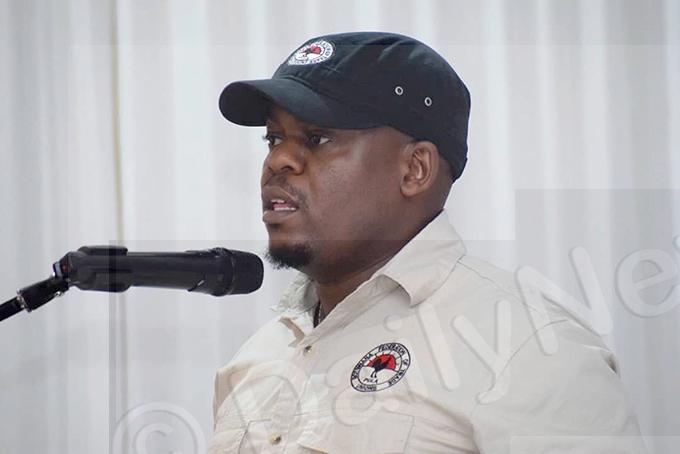Botswana advances in HIV stigma fight
14 Apr 2024
Batswana have transitioned from a society that once associated HIV/AIDS with sin, witchcraft, infidelity, misfortune, or death to a society that predominantly embraces and supports individuals living with HIV.
This transformation was highlighted by Assistant Minister for the State President, Ms Boitumelo Gofhamodimo, in her remarks during the official launch of the Botswana People Living with HIV (PLHIV) Stigma Index 2.0 Study Report on Thursday.
Ms Gofhamodimo emphasised that this positive change would not had had been possible without the relentless advocacy of people living with HIV who worked towards altering societal perceptions and behaviours towards those affected by HIV.
She mentioned that the study findings would provide insights into the current status of HIV-related stigma and discrimination in the country, shedding light on the challenges faced by PLHIV. Moreover, she stressed that these findings would underscore the importance of addressing stigma and discrimination, which could hinder progress in comprehensive HIV prevention and treatment services.
Ms Gofhamodimo applauded the collaborative efforts of the government, National AIDS and Health Promotion Agency (NAHPA), Botswana Network of People Living with HIV/AIDS (BONEPWA), UNAIDS, and the Global Network for people living with HIV for conducting the study in 2022.
The report, finalised in December 2023, offers a comprehensive understanding of the various forms of stigma and discrimination experienced by those living with HIV in Botswana. It assesses internal and external stigma, discrimination within communities, and the impact of stigma on disclosure, treatment, and care services for PLHIV.
The study also documents actions taken by PLHIV to address stigma, captures their experiences with discrimination, and compares the prevalence of stigma and discrimination in Botswana with other countries in the region that have conducted the Stigma Index survey.
Launching the report, the United Nations Programme on HIV/AIDS (UNAIDS) Policy, Advocacy and Knowledge Branch director, Ms Christine Stegling expressed concern that HIV stigma and discrimination threatened access to vital health care services, hindering prevention, testing, treatment and support for those affected.
To address this, Ms Stegling stressed that it was important to build resilient systems, including community health systems, where everyone could access health care services without fear of stigma and discrimination.
She also added that it was crucial to eliminate all forms of stigma and discrimination, and commended the government’s multi-sectoral approach and political commitment towards combating the HIV scourge as a public health threat.
A lot of what Botswana has achieved in the fight against HIV/AIDS and ending stigma and discrimination, she said was made possible through mutual partnerships with development partners and collaborations with civil society organisations.
On behalf of UNAIDS, Ms Stegling also thanked NAHPA for partnering with UNAIDS Botswana to provide technical assistance, BONEPWA for continued leadership in the development of Stigma Index survey, as well as the respondents who participated in the survey to make the study a success.
Presenting the study findings, University of Botswana consultant, Dr Serai Rakgoasi said the study sample comprised 1 645 respondents in both rural and urban areas in 24 census districts, around the country.
Dr Rakgoasi said 6.8 per cent of respondents reported actions related to internalised stigma such as self-isolation from family, friends, avoiding health care, seeking jobs and other means of support, 28.7 per cent reported negative feelings about their HIV status such as shame and guilt and 21 per cent felt that their HIV status had an impact on their ability to meet needs such as secure relationships, love, self-respect and respect for others.
With regard to resilience, he said 11.1 per cent of the respondents felt that HIV had negatively affected their self-confidence, 4.5 per cent felt that HIV had affected their self respect, whilst 2.5 per cent felt HIV had affected their respect for others.
Respondents, he said felt HIV had affected them as follows; 9.1 per cent their desire to have children, 10.3 per cent their ability to cope with stress, 5.5 per cent their ability to achieve personal goals, 7.9 per cent their ability to have close relationships, 9.4 per cent their ability to find love, 4.0 per cent their ability to contribute to the community and 2.8 per cent their ability to practice a religion or faith.
Dr Rakgoasi expressed delight that the level of social exclusion from social gatherings or activities, because of respondent’s HIV status was relatively low, as only three per cent of respondents had ever felt excluded from either family, religious or any social activities.
Overall, he said the study showed that 5.6 per cent of respondents had experienced at least either verbal abuse, blackmail, physical abuse, job discrimination or some form of abuse or discrimination against their partner, spouse or children, because of the respondents’ HIV status. Ends
Source : BOPA
Author : Lorato Gaofise
Location : Gaborone
Event : Launch
Date : 14 Apr 2024






